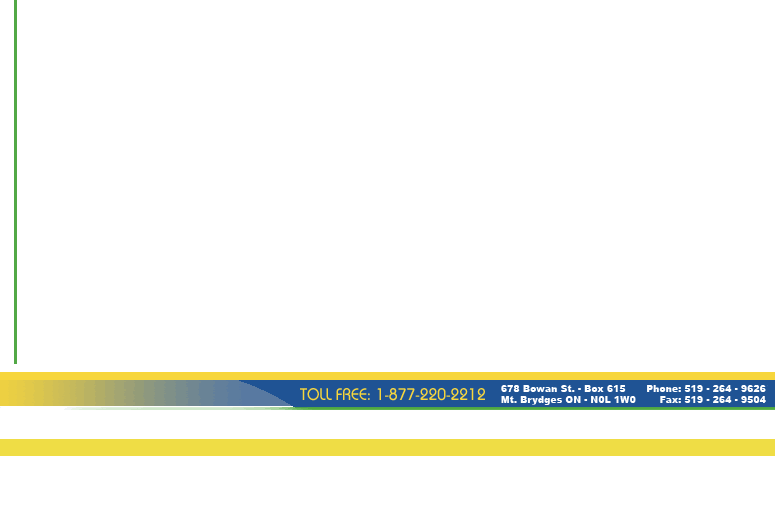Maximum
Swine
Marketing Ltd. Newsletter
Hog Commentary for
January 31st, 2006
Hog
Markets
After regional cash markets made a come back from the big losses
of the previous 2 weeks bids once again declined for live hogs.
Cash was down U$3.81/cwt in the ISM, while national prices were
steady for the week. Cutout went down slightly with loins, hams
and picnics all showing some weakness. The recent losses in
the pork product market can be attributed to a large amount
of chicken available in the US market. US chicken stocks have
soared recently as the global demand has decreased due to the
Avian Flu situation in Asia and Europe. This is to be viewed
as a short-term product issue as the decreased chicken consumption
will need to be replaced and the US pork industry has made significant
headway in the international market. Slaughter was 1.7% higher
than 2005, however pork production for the week was 3.3% higher
as weights continue to add pork to the market.
As expected with all the above short-term negativity, lean hog
futures experienced weakness throughout most of the week. The
Feb contract lost U$3.03/cwt, which is less than the cash decline
for the week and thus still holds a premium. Despite the premium,
basis levels are relatively normal for this time of the year.
The lean hog futures market has experienced a lot of downside
in 2006 and the consensus is that cash and cutout will carve
a low soon and the market will turn as the remaining of 2006
looks more positive than what is currently priced into the lean
hog futures market.
Feed Markets
Upside in the soy complex stemmed from weather concerns in Argentina
where high temps are being seen as a threat to final yields
and production potential. Rains forecast for the end of this
week and beginning of next are expected to ease the current
stress but until moisture is seen the premium is likely to remain
in the futures. Negative near-term fundamentals and projections
for increased US production are being overshadowed by the current
weather conditions and speculative buying from investors dropping
money into food based index funds looking for low valued commodities.
Volatility will continue with planting uncertainty and weather
premiums providing pricing opportunities below current levels.
Hog producers who were unable to acquire protection for soymeal
on the last move lower in the futures should hold for a break
in the futures before extending protection into 2006.
Corn futures posted strong gains during the past week trading
to the highest level since Oct 3rd, 2005 reaching $2.22 US per
bushel in the Mar contract. Strength from technical buying,
index fund investments and a lower production outlook for 2006
lifted old and new crop contracts to the 4-month high. Although
supplies remain at record levels for the coming crop year demand
from the livestock and ethanol sectors are forecast to increase
year over year helping deplete the massive ending stocks from
05/06. The near-term situation for cash corn looks to trade
range bound given increased deliveries on market strength but
long term will depend on acres planted in the US which remains
2-3 months away.

